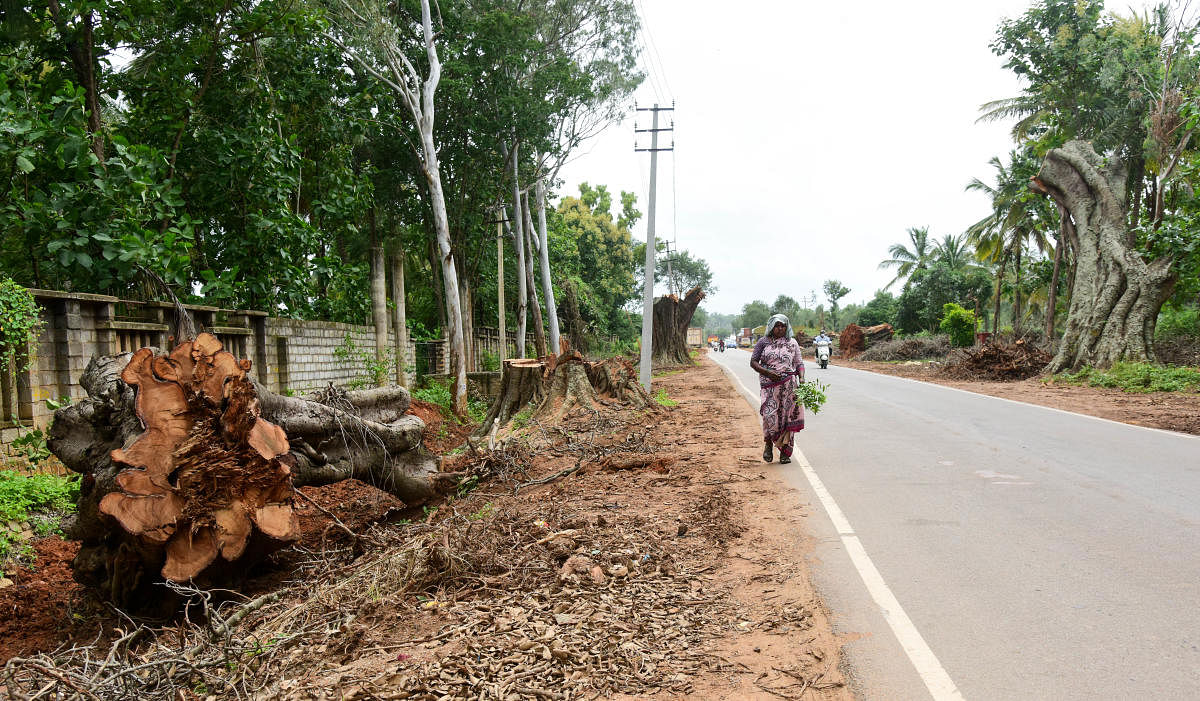
As many as 431 trees, most of them decades old, are set to be removed to widen the road between Belatturu Bridge and Kannamangala Cross in East Bengaluru taluk. The road will be another bypass to the Kempegowda International Airport.
While 355 trees will be cut down, the rest will be transplanted.
The Karnataka Road Development Corporation Limited (KRDCL), the state government agency which is widening the road, approached the Forest Department for permission to remove the trees. It also wrote to the BBMP, stating that it was ready to pay the upset price as well as fund the compensatory afforestation.
On December 5, the Forest Department's Bengaluru Urban division issued a public notice, giving citizens 10 days to file objections to the tree-felling.
With the deadline now over, the tree-felling is set to go ahead. It's not clear how many public objections were raised as the Bengaluru Urban Deputy Conservator of Forests, Ravishankar, did not respond to questions.
The road-widening is part of the project to develop the stretch from Bestamanahalli (on State Highway 5 in Anekal taluk) to Hoskote Road (on National Highway 4 in Bengaluru East taluk). Several sections of this road will complement the Sarjapur-Whitefield corridor. The KRDCL has sought to develop roads on the outskirts to reduce traffic congestion in the city by building bypasses.
The proposal has come nearly three months after environmental activists petitioned the high court that the KRDCL was cutting down trees, including many heritage ones, without obtaining the necessary permissions. The court ordered an expert committee to examine if trees marked for felling can be saved.
Among the trees marked for axing are honge (Indian Beech), jacaranda, gulmohar, palm, hebbevu, akashamallige (Indian Cork), torematti and cherry. Hundreds of these trees have a girth of more than 50 cm and a height of 5-11 metres.
Dattatreya Devare, of the NGO Bangalore Environment Trust, noted that most of the trees on the stretch were heritage trees, and called upon government agencies to desist from seeing them as impediments but take a proactive approach in saving them.
He cited the Bombay High Court order in Nashik Municipal Corporation vs Nagrik Kruti Samiti and others, which stated that the road width should be reduced to save trees. "If big trees exist on the road to be widened, endeavour shall be made to protect those trees by reducing the width of the road at a particular place," the court ruled.